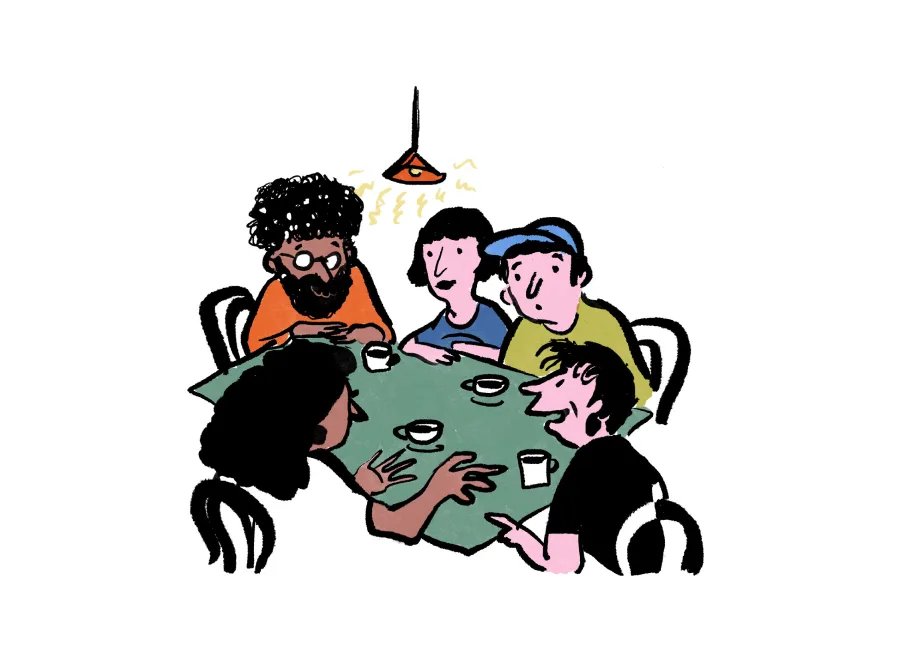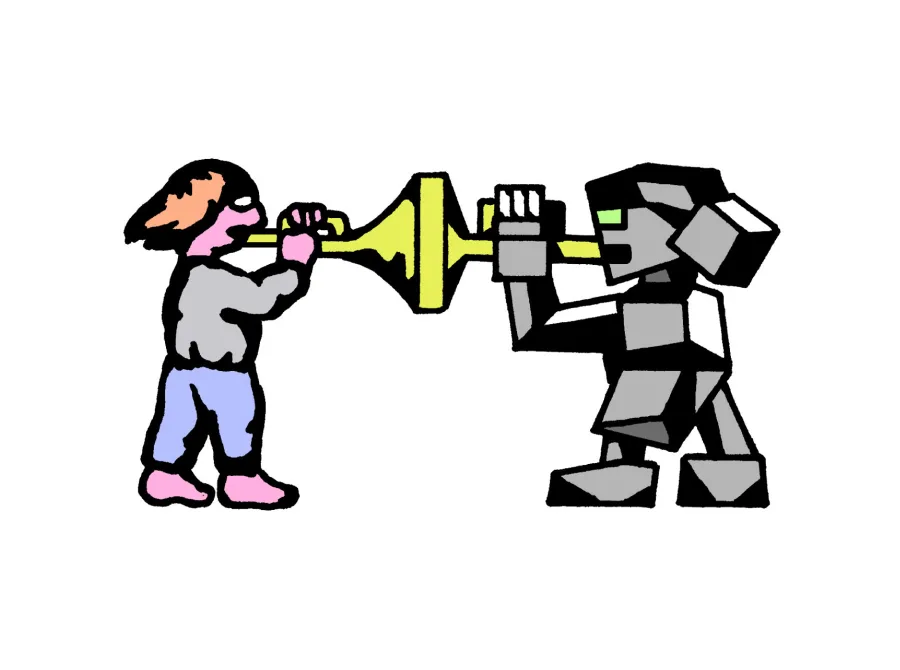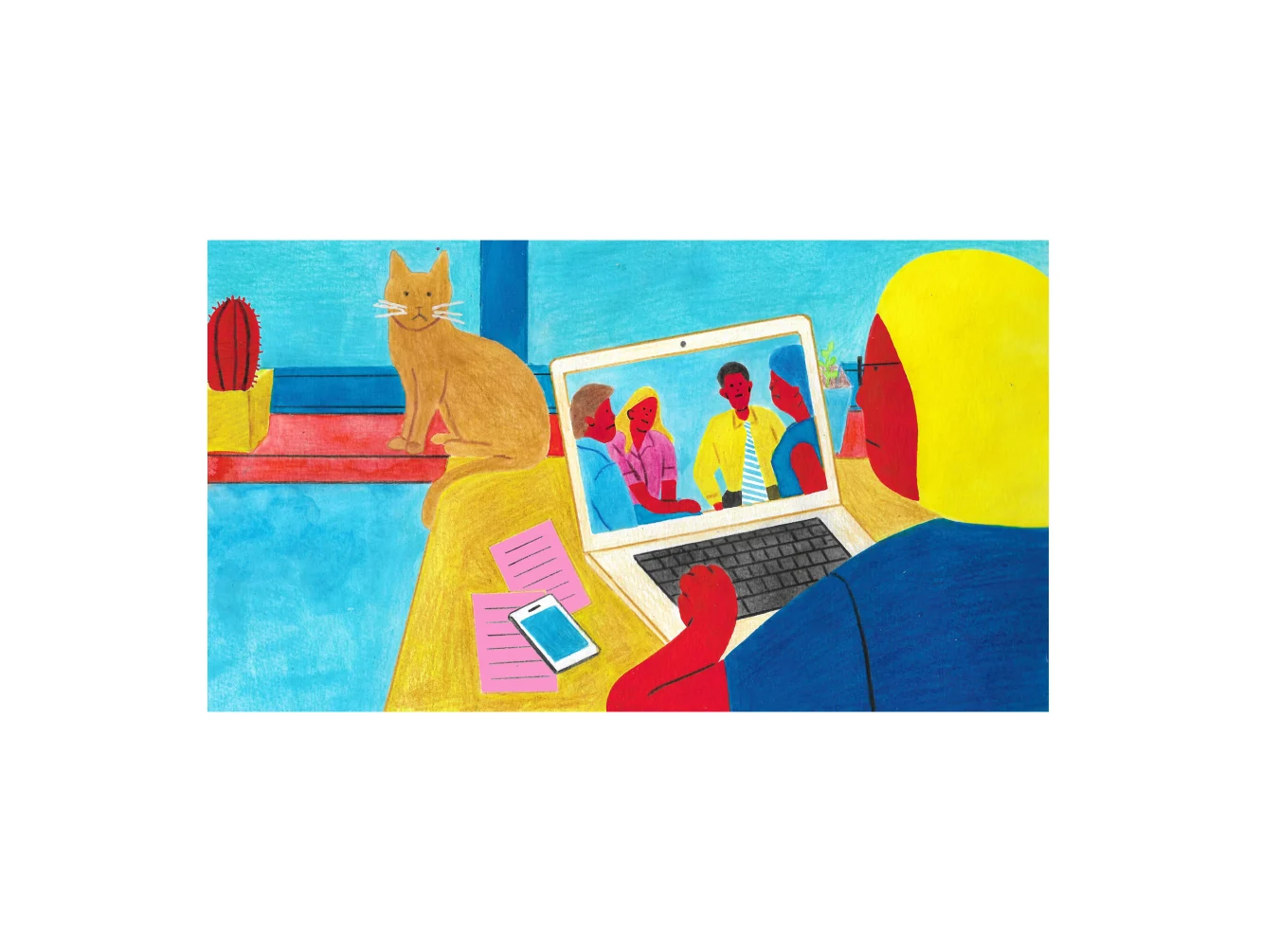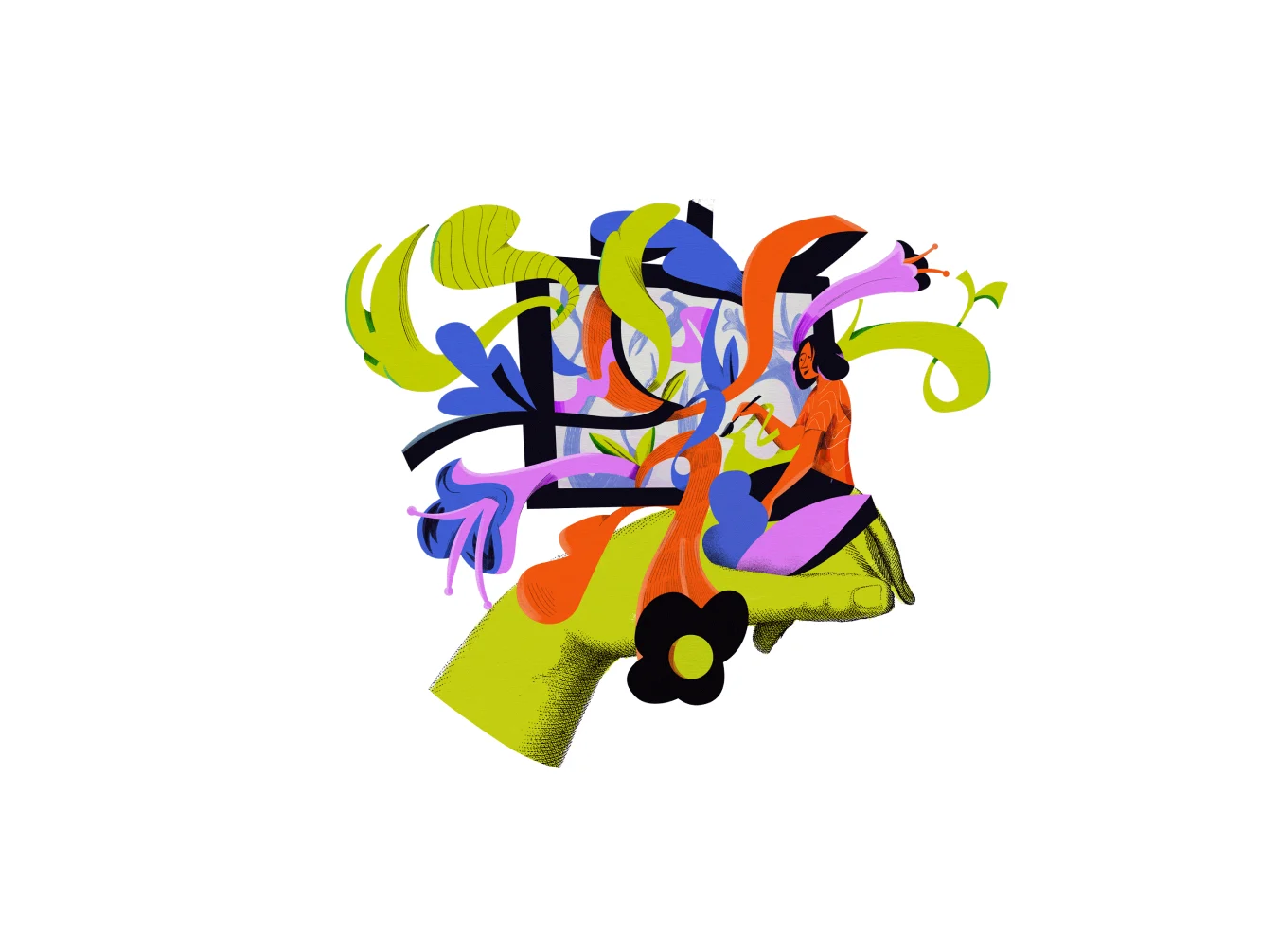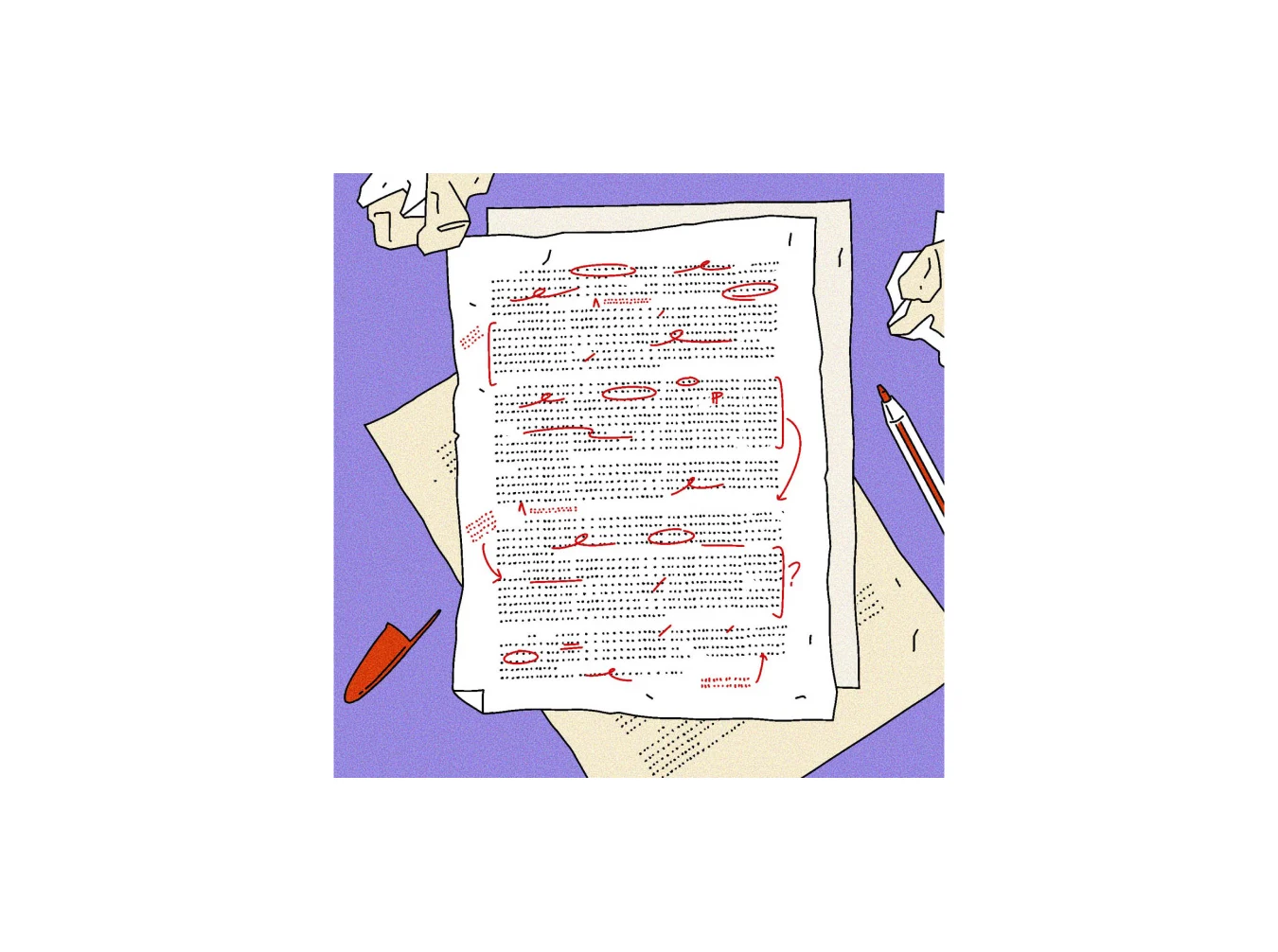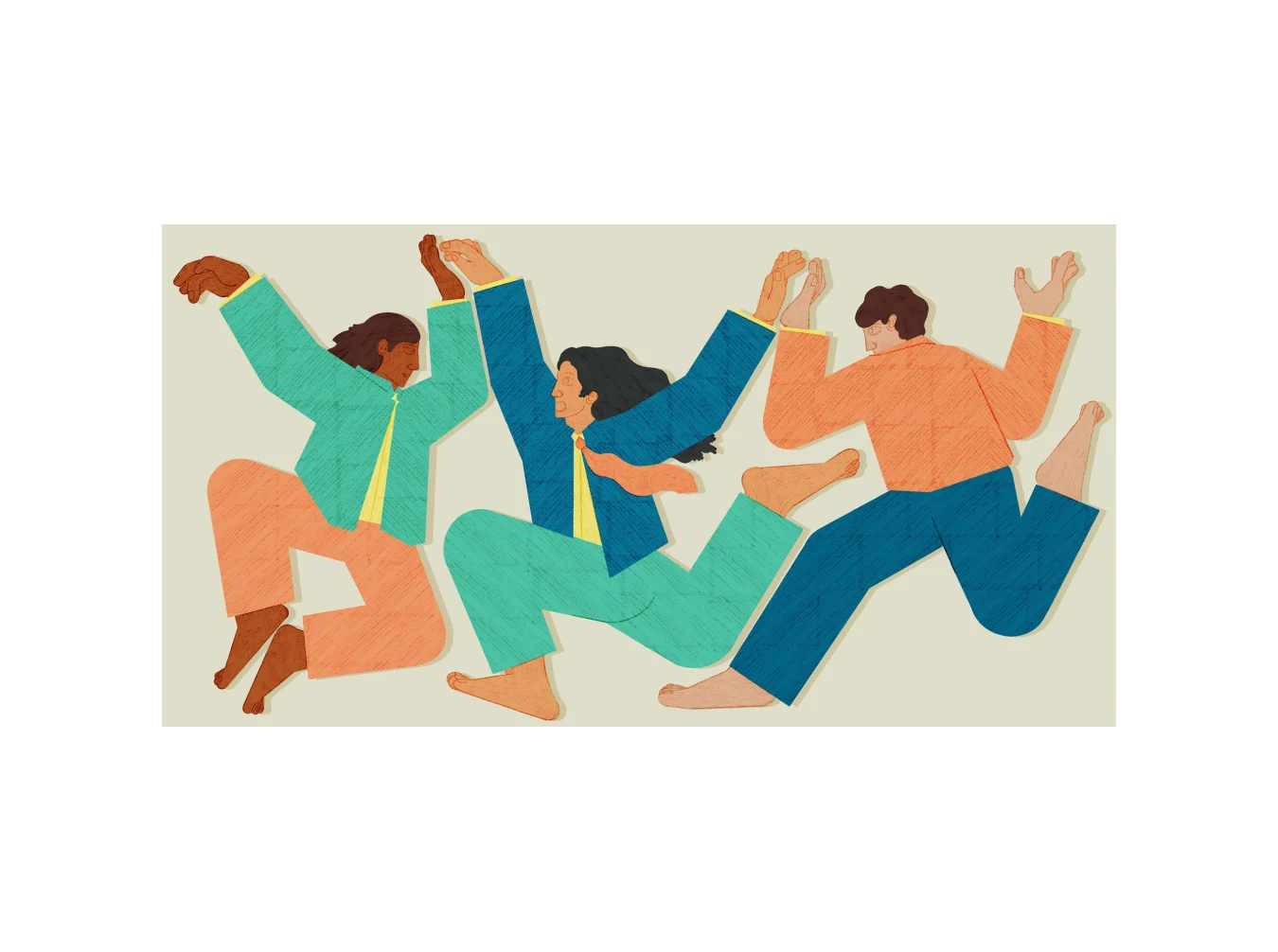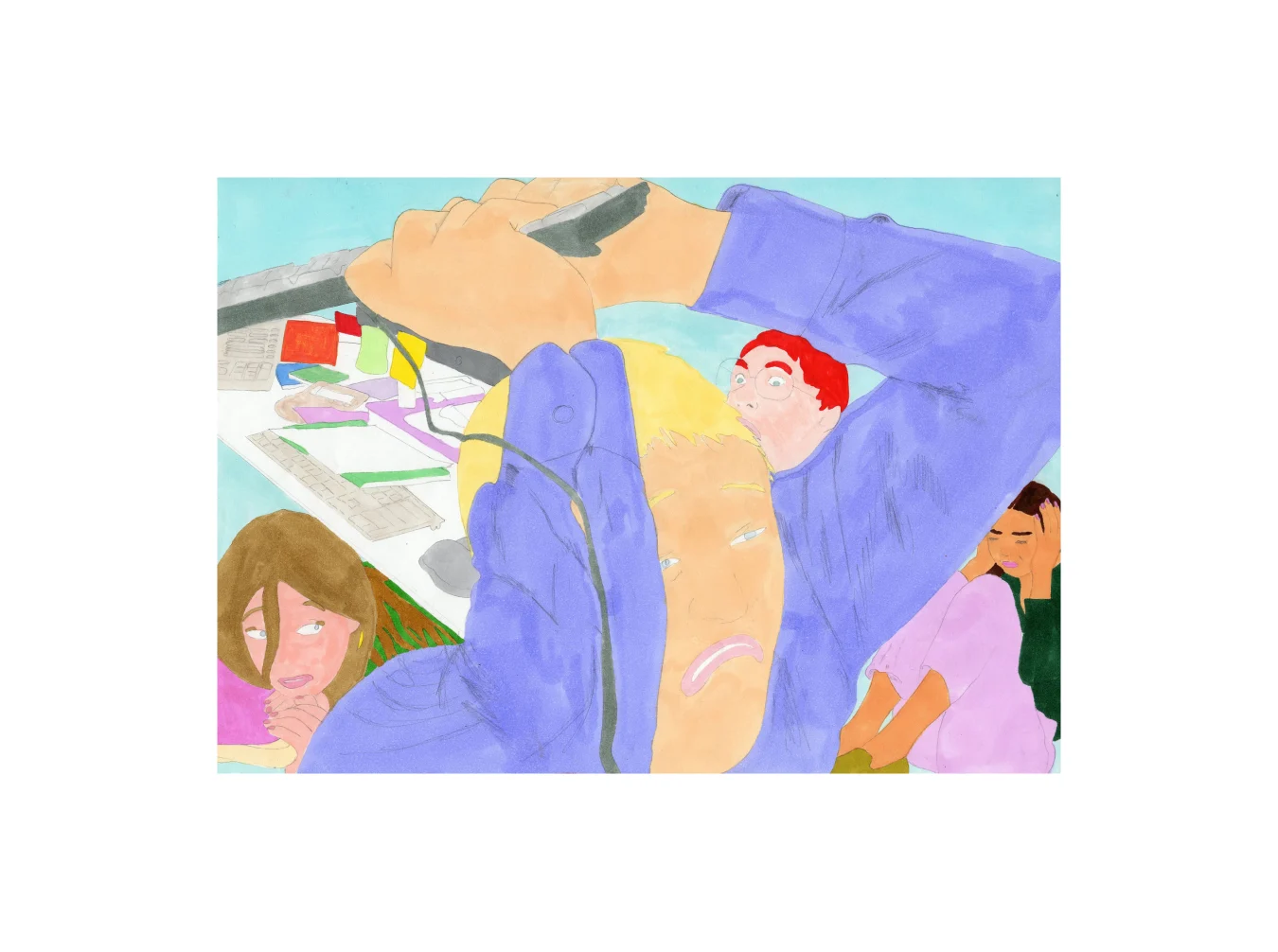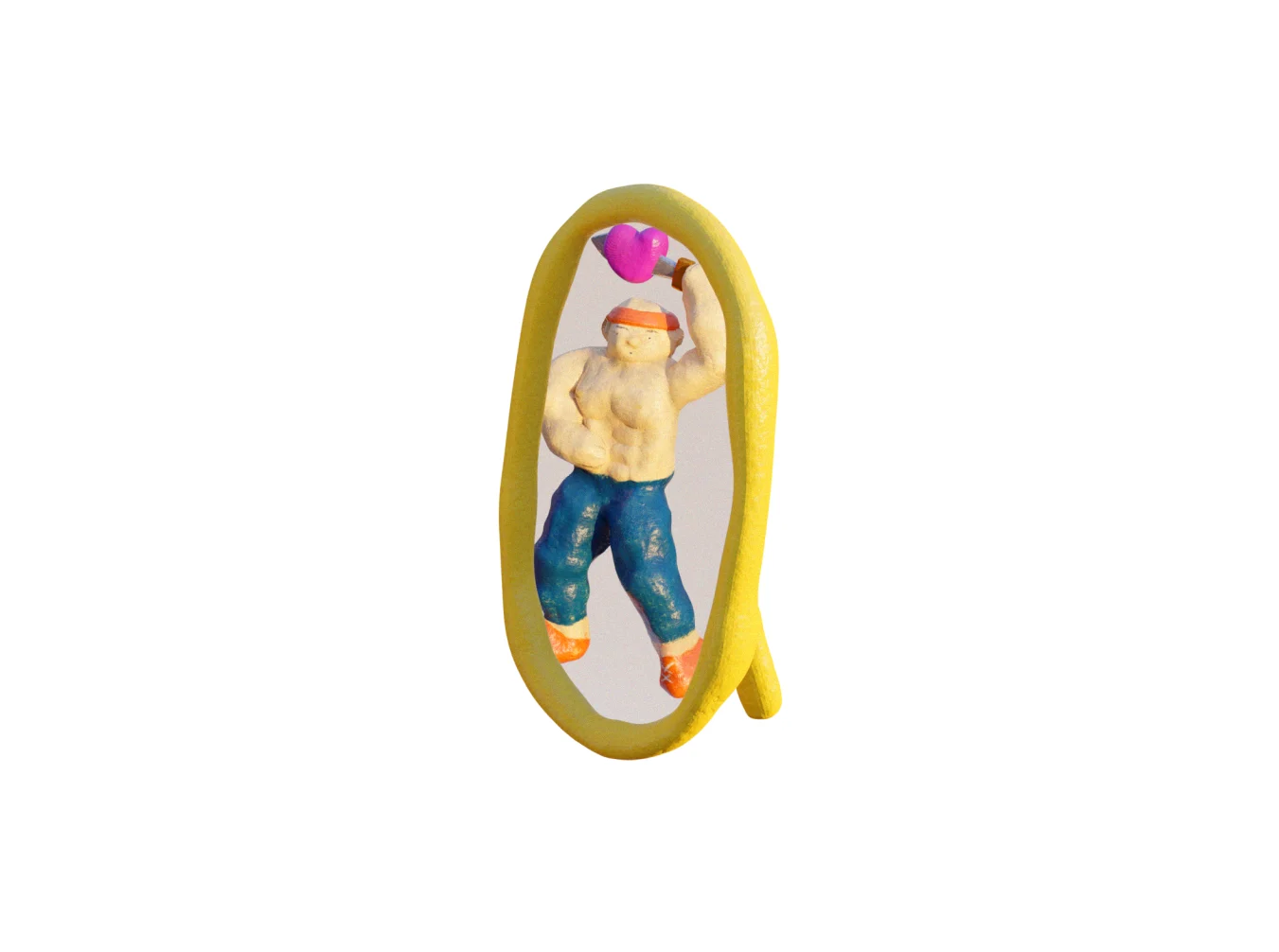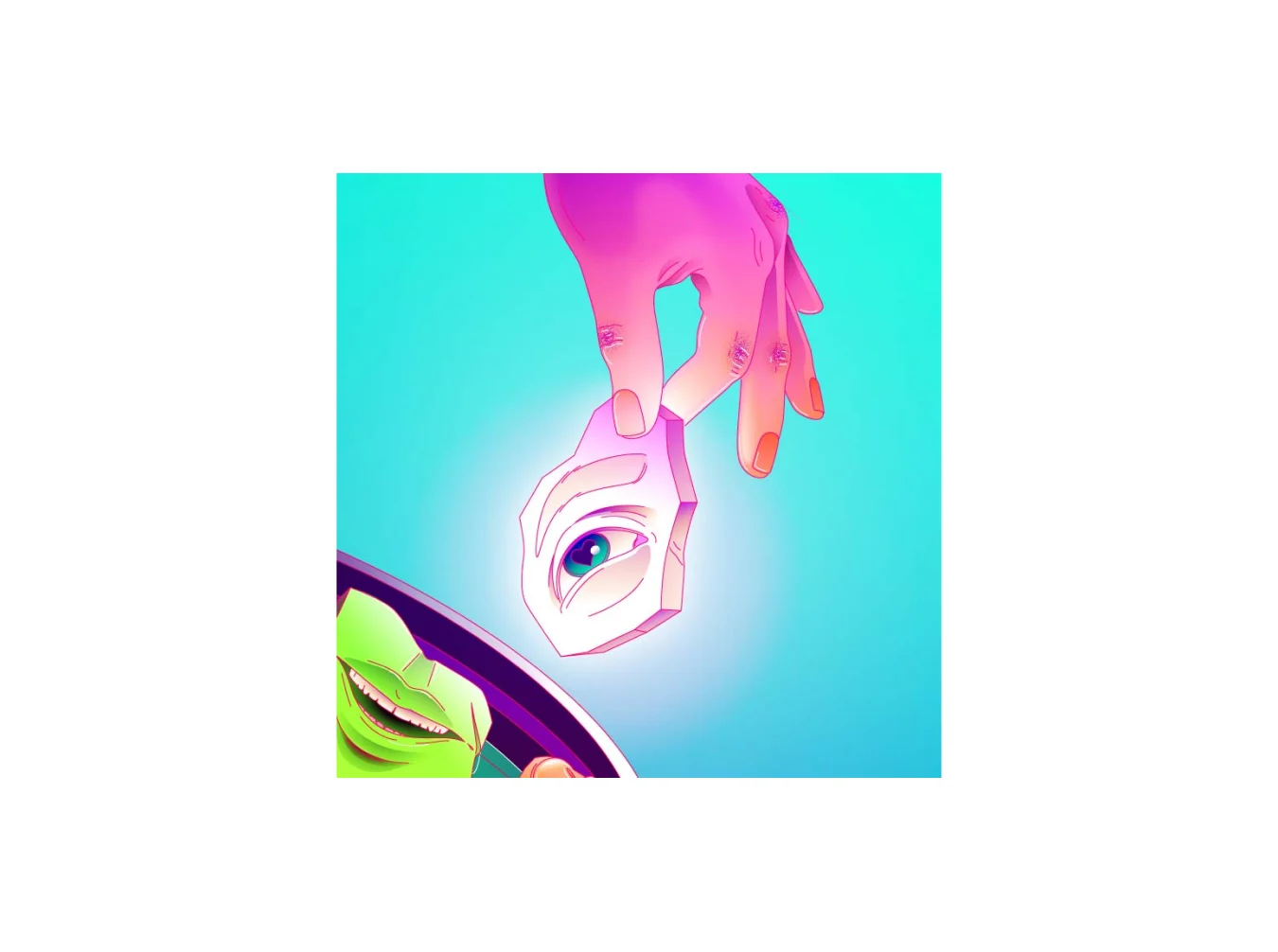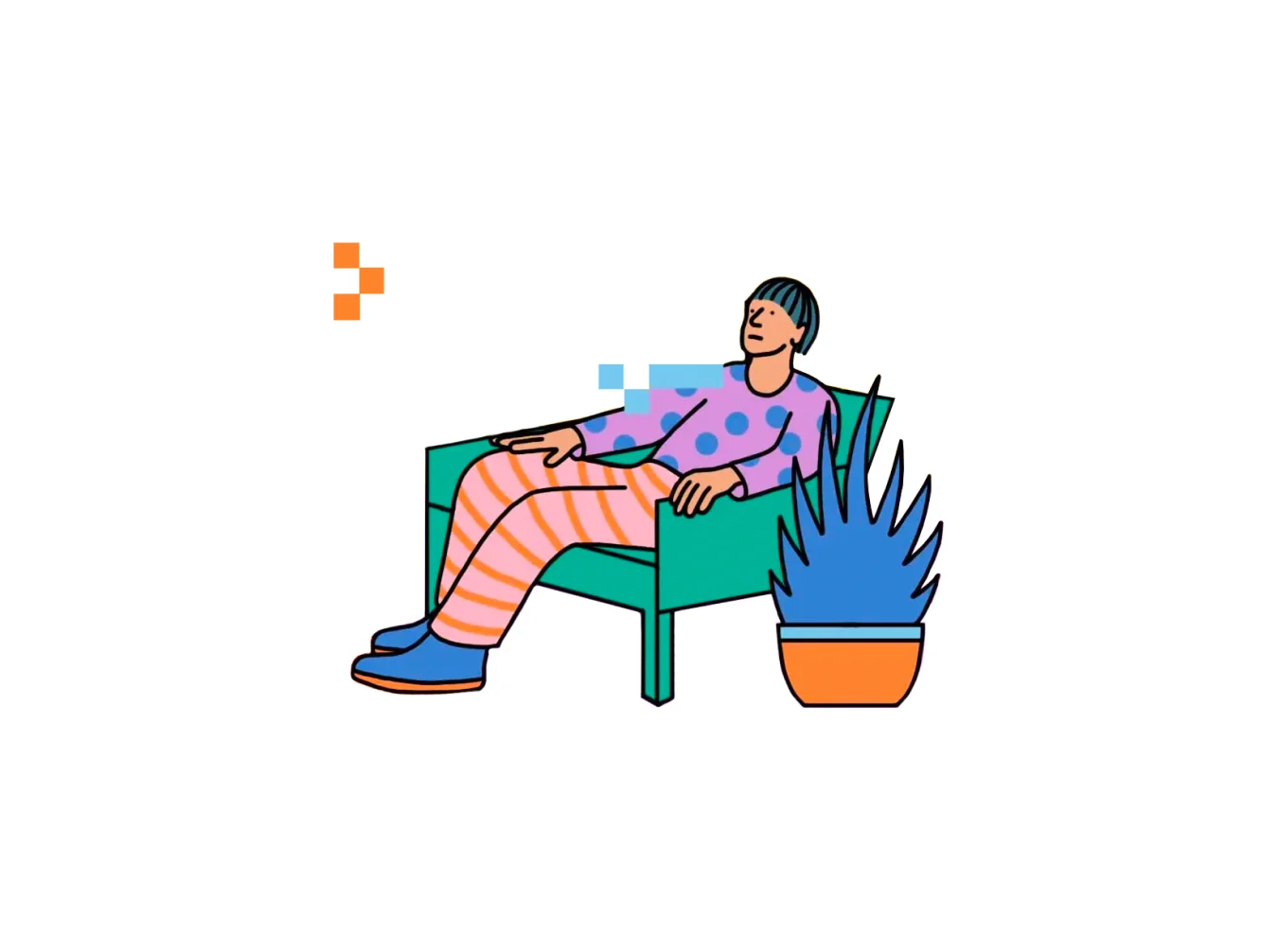
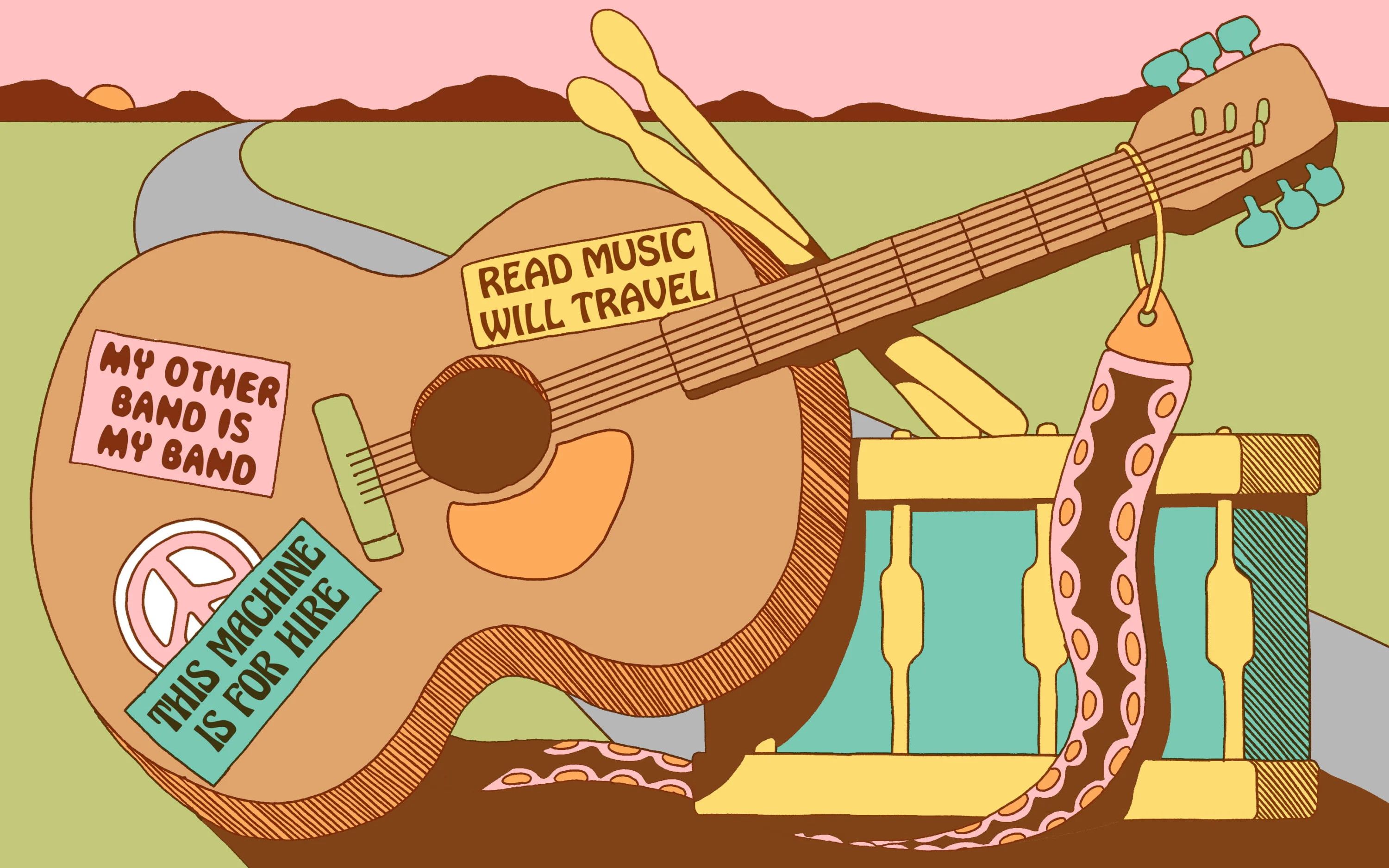
To make a living as a session musician is to build a career in obscurity—and that’s not necessarily a bad thing. For many, the job is the best of both worlds, offering the thrills of performance and collaboration, without the creative pressure, ego and commitment that comes with working on one’s own music. Here, James Cartwright speaks with multi-instrumentalist Samuel Organ to find out the ins and outs of the trade.
Artwork by Clay Hickson.
There’s a story in Brian Sweet’s biography of Steely Dan about Mark Knopfler turning up to record a session for their “Gaucho” album and things going less than well. Donald Fagen and Walter Becker had heard Knopfler’s guitar work on Dire Straits’ debut album and thought he’d be just the guy to add some solo work to a track called “Time Out of Mind.” In the end, after 10 hours of recording, Knopfler only produced 15 seconds of audio that Fagen and Becker deemed serviceable. He never worked with the pair again (in fact, Fagen and Becker went their separate ways after “Gaucho,” too) and later referred to it as “A strange experience—like getting into a swimming pool with lead weights tied to your boots.”
Thankfully, this tale of drowning by perfectionism isn’t indicative of the working life of most session musicians—at least not according to Brighton-based musician Samuel Organ. Steely Dan were outliers in the industry, known for grueling days in the studio and the relentless pursuit of purity in their sound, even at the expense of their collaborators’ mental health. It wasn’t rare for the band to record for weeks, only to tear everything up and start from scratch. When Knopfler finally did leave the studio, the tape operator came up to reassure him that, despite his misgivings, it hadn’t been a total failure: “Man you did great. I’ve seen musicians crawling out of here after their sessions.”
Pursuing your own artistic endeavors demands an objective self-awareness where you view yourself and the things you make as a product.
Organ rarely crawls out of his sessions. In fact, for him, the joy of doing session work comes from the lack of creative pressure and ego. “You’re literally just there to help people,” he says, “so it doesn’t have the same energy drain as when you’re working on your own stuff. When you're pursuing your own artistic endeavors, it's incredibly exhausting. It demands an objective self-awareness where you view yourself and the things you make as a product, and that takes a lot out of you.”
Session work, by contrast, is all about helping someone else to achieve their vision, which means most session musicians spend their lives on the fringes, rarely sharing the spotlight with the big name artists they support. There are exceptions to that rule; the E Street Band are almost as famous as Bruce Springsteen, and The Band had a hugely successful recording career after they gave up touring with Bob Dylan. Both outfits were inducted into the Rock & Roll Hall of Fame on their own merit. But more often than not, session artists remain footnotes on a recording even if, like the Funk Brothers or the Muscle Shoals Rhythm Section, those recordings turn out to be some of the most celebrated of their age.

For Organ, that’s part of the appeal. “I sway quite wildly between introvert and extrovert, and sometimes you just can’t be up on stage or working on your own music,” he says.
Session work allows him the downtime between his own projects to give his inner introvert the space it needs. “It's nice to have the balance,” he says. “I definitely wouldn't want to do specifically one thing or the other.”
Organ has always worked in music. He moved to Brighton in his late teens to pursue a degree in music performance, and when he graduated, he took a job at local label Tru Thoughts. After five years he moved to Small Pond, another Brighton-based label and recording studio, all the while playing in various bands and pushing his own personal projects. Since 2013, he’s played guitar and keys in the Physics House Band.
Organ decided to make session work his living in 2020—“about a month before Covid landed and the whole world was destroyed.” The effect that COVID-19 had on the music industry has been well-documented (ICYMI, tours and recording sessions were canceled for the best part of two years), but now that he’s on the other side of it, Organ is sanguine about the experience.

“In some ways I’m grateful for having chosen the worst possible time to go freelance because that was as bad as it’s ever going to get—there was no work and no industry. It was really tough, but I’m now prepared for how difficult things can be.”
And it wasn’t all bad. The total eradication of any kind of touring schedule gave Organ the opportunity to work on his solo material, and in 2021, he released his debut album, “A Safe Place in Cyberspace.” Now that the world is slowly returning to something resembling its pre-Covid form, the album is serving as a calling card to get him more work. “It’s opening up a lot of doors.”
It’s not just the new album bringing in the work though: Organ’s reputation already preceded him. The Physics House Band made a name for themselves as a tight live outfit, and it was because of this that Organ first picked up session work. It took the best part of a decade to build up enough of a network to make session work into a career.
So much of what you learn is rendered completely useless because of how quickly the music industry changes.
“It wasn’t simply a case of going freelance one day,” he says. “Through touring in the UK and Europe and Japan, I started to meet all these other bands, including a guy called James Trude who was working with Aluna George at the time. He hooked me up with some jobs with pop acts, and it’s grown from there.”
To listen to his solo work and output with the Physics House Band, Organ doesn’t seem an obvious choice to partner with a bunch of emerging pop stars. Sonically, he can be pretty challenging, but he often collaborates with artists producing much simpler sounds.
Is that something he has a problem with? Not a bit. “It’s nice to play a wide spectrum of music,” he says. “It all influences each other, and I learn so much about arrangement or equipment from working across different genres of music. Being part of all these different worlds is great.”
At a more fundamental level, pop pays. Organ can’t make a sustainable living from his band or his solo work, but “pop acts have the budgets to pay their musicians,” and in an industry where money can be extremely hard to come by, session work with major label artists can ensure your bills are paid.
In addition to the bread and butter work of touring and recording, Organ also works as a music director for live shows. In this role, he’s responsible for programming a live show from start to finish, deciding on the running order of the set and what instrumentation will be live or pre-recorded. Then he has to record all the pre-recorded material himself (one of the perks of being a multi-instrumentalist). It’s a huge responsibility and takes an awful lot of planning and laptop time.
“Not many people appreciate how much time is spent at the computer rather than playing your instrument,” he says of both his session and music directing work. “That was actually a big learning curve for me, too. One of the first big session projects I worked on was for a young artist on Polydor, and I spent a week recording and mixing their backing tracks before we went on tour.”

When the artist toured, Organ took drum and backing track duties, with another band member handling keys and sax. With the lead singer, they were a tight unit of three that could tour affordably, which may not sound very rock’n’roll, but it’s a method that makes developing and touring young artists financially viable for a label. “Obviously, it'd be lovely to have a stage full of musicians,” Organ says. “But it's a really nice way to work, and it’s a huge part of my session work now.”
It’s also a situation that’s unlikely to change. With the cost of living set to increase over the coming years, and fuel and transport costs at an all-time high, taking a young artist out on tour with a full band is an expensive endeavor even for a major label. Ten years ago, young UK bands would have been able to do a full European tour and comfortably break even, but today that’s just not possible. “The entry point for young musicians is just so much higher now,” Organ says. If a debut tour goes badly, often the label will drop the artist.
In the UK, the situation is made even more complex by Brexit, with bands unable to tour Europe without costly working visas (sometimes upwards of £400 per person). In 2021, a number of upcoming acts had to pull out of tour dates in Spain as the rising costs of visas made smaller shows financially impossible. While the UK government has so far negotiated visa-free travel with 20 EU member states, progress has been slow. For established acts, these issues aren’t a barrier, but for newer artists it’s a huge loss of revenue and exposure, which in turn means a loss of opportunities for Organ. “I’ve had four tours canceled this year already,” he says.
Thankfully he’s adaptable, and is finding other ways to make up the deficit. Organ now earns a good chunk of his living recording samples for Splice and Novation, both of whom produce digital products for recording artists. “It’s mostly sample packs and loops for their products that let people build songs in a really simple way. It’s good work to fill the gaps and there seems to be no shortage of it. Using loops and samples is such a huge part of music creation now for so many different companies, and the day rate for that work is better than going out on the road for 12- or 15-hour days.”
Because of this, and COVID, and the work he does as a music director, Organ now makes about 50% of his income recording in his home studio. This is not a situation his music education prepared him for. In fact, a lot of what he learned at university has become redundant since he left.
“My career today looks completely different from what I was led to believe it would be on my BA. So much of what you learn is rendered completely useless because of how quickly the music industry changes,” he says. “Even when I feel like I have a good lay of the land in terms of how to earn money, something will change and I’ll feel completely naive again. You’re just never sure where the opportunities are going to come from.”

Like most freelancers, Organ’s year is subject to the ebb and flow of his own personal projects and the recording and touring schedules of other artists, so learning how to navigate the down times is hugely important. “There are often long, quiet stretches when your regular clients aren’t working on a campaign and so aren’t touring as much. When that happens you have to adapt to find new clients or do other things.”
It sounds very piecemeal and unpredictable (there’s a reason, he says, that so many musicians report suffering from depression and anxiety), but it’s a situation that Organ’s learning to enjoy. “In the arts there’s this expectation that you should always be pushing for your own art to be number one at all times, but I just have no desire to operate purely as a solo artist. I want to have the opportunity to do lots of different things—even things that aren’t music. When I do my solo projects the hope is to move towards a passive income, so when I have down time from session work, the income from releases ensures I can still pay the rent.
“I just think it all has to be approached with a sense of adaptability,” he says. “Or at least just not expecting anything to last.”
That adaptability, to Organ, is the real skill of the session musician. “To always be available and ready for anything.”





